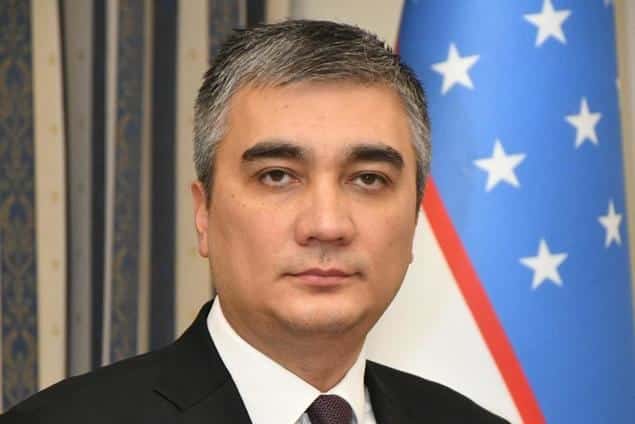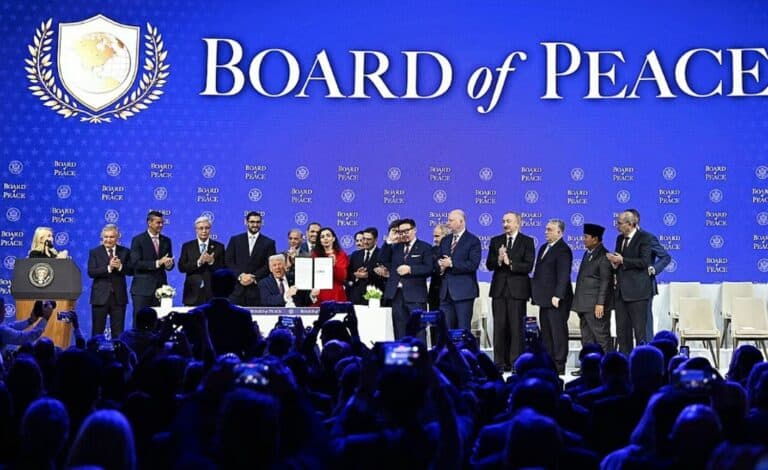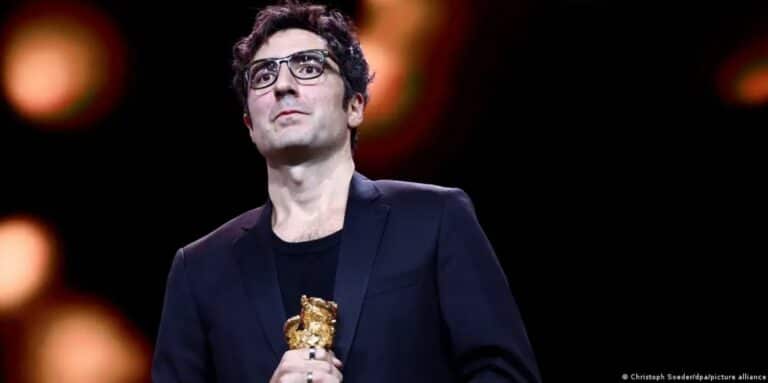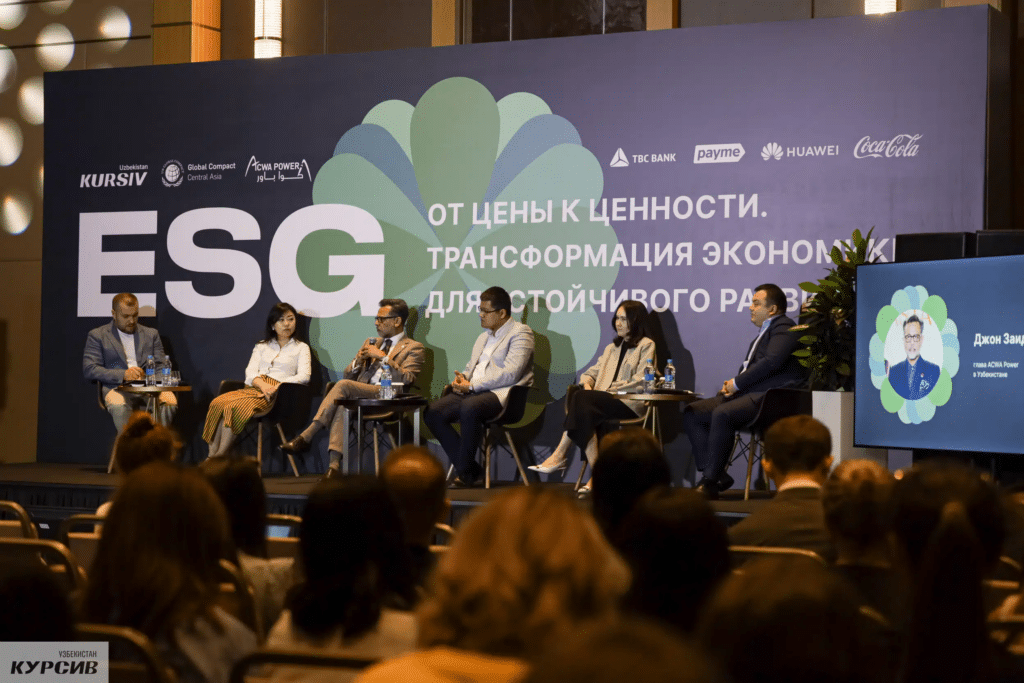
On July 4th, Kursiv Uzbekistan hosted its inaugural ESG Forum, “From Cost to Value: Transforming the Economy for Sustainable Development”, at the Hyatt Regency Tashkent. The Forum brought together experts, government representatives, and business leaders for an open dialogue on various approaches to sustainable development. The event featured four-panel sessions where participants discussed how to achieve sustainable development.
The Editor-in-Chief Anastasia Novikova opened the Forum. She emphasized that most countries are transitioning to the Green Economy. The Nordic Countries are the current leaders in this area, demonstrating that the ESG concept improves citizens’ welfare, safety, and social security.
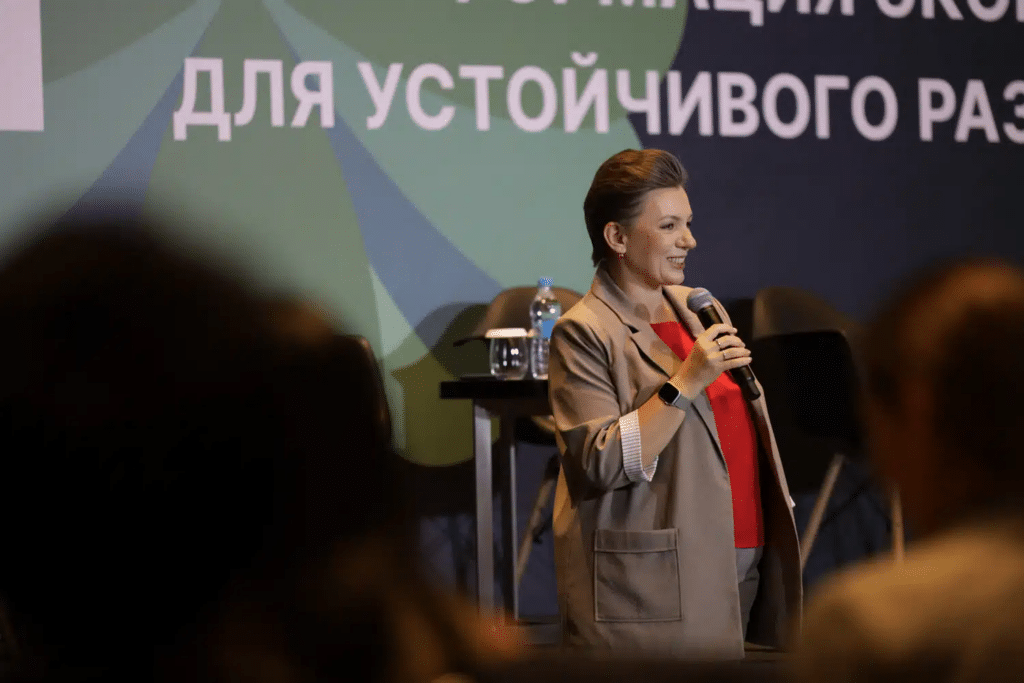
Novikova added, “Uzbekistan, with all its potential, is ready to become a regional leader in ESG. She also drew attention to the importance of sustainable development, which will help mitigate the negative impact of various trends, including air pollution. Uzbekistan is already doing well in attracting investments. The implementation of ESG principles will further strengthen its position,” concluded the leader of Kursiv.
Session 1: “Exploring How Government and Business Contribute to the Improvement of the Green Economy”
During the first Forum program session, “Purity and Cleanliness in Everything: Environmental Friendship as a Business Development Tool”, experts discussed the actual and potential contribution of the business community to the Green Economy. Suna Park, director of the National Climate Center of Uzbekistan and advisor to the Minister of Ecology, Environmental Protection, and Climate Change, highlighted the indispensable role of entrepreneurs in this process.
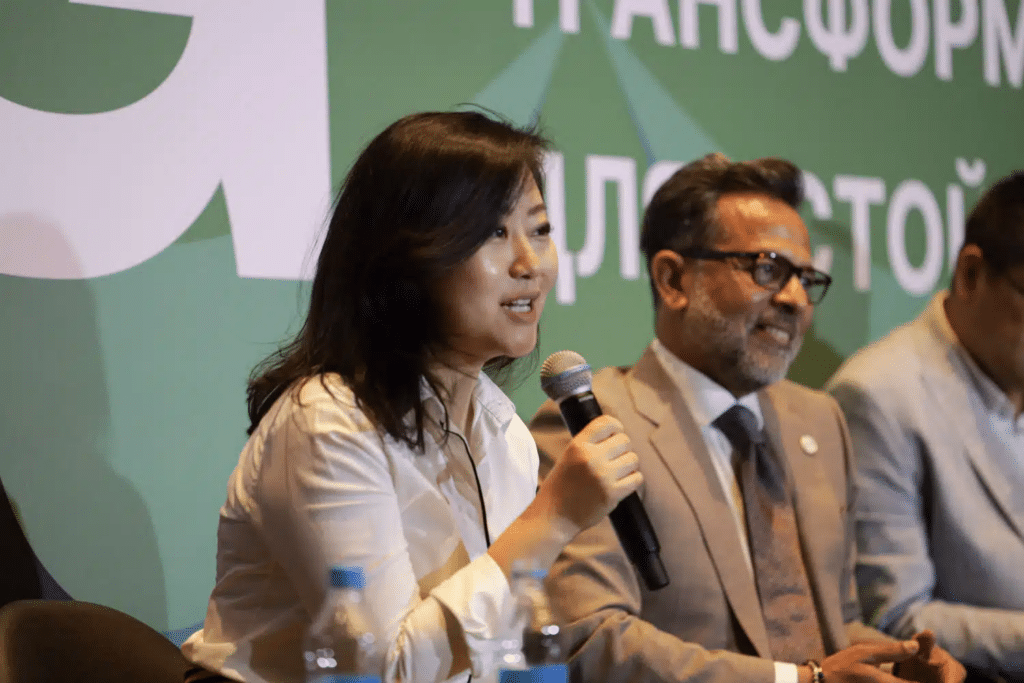
“In the face of climate change, discussions about green economics and innovations must consider the important role of the private sector,” said Park. Furthermore, the Ministry Advisor emphasized that the approach “from top to bottom,” initiated by authorities, is a misconception.
Park shared that in recent years, the Uzbek government and businesses have reached a point of intercommunication regarding the Green Economy.
She noted that up to 60% of the 100 daily requests from the relevant department come from the business community.
“However, we are still working on establishing effective ways of interacting with the companies. Unfortunately, not all businesses genuinely wish to promote the ESG agenda,” underscored the Head of the National Climate Center
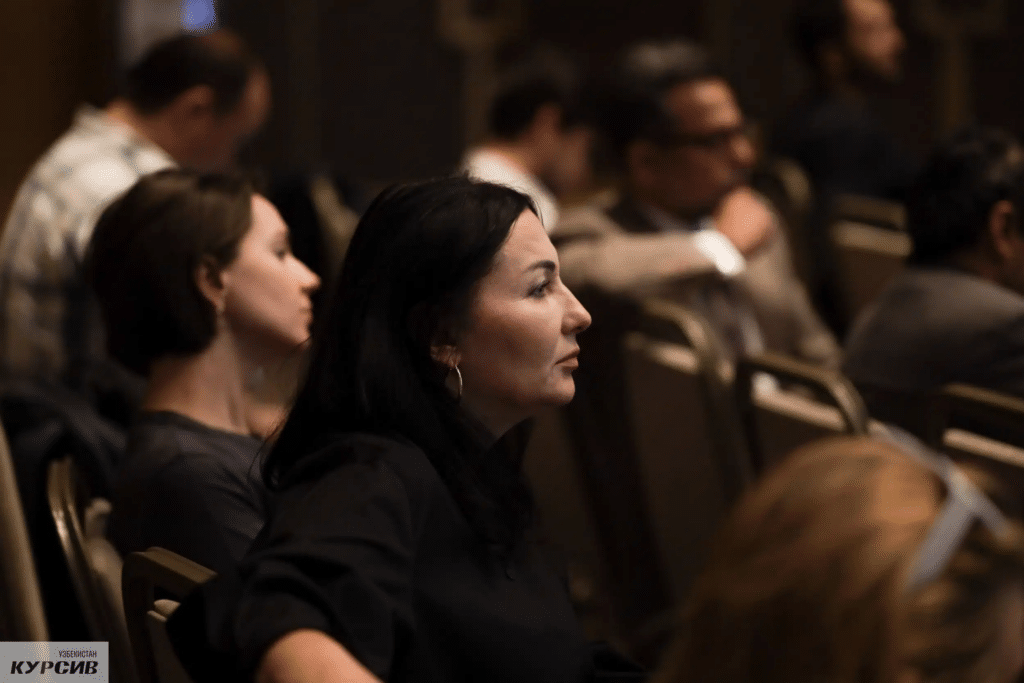
She also emphasized that big companies cannot transit to eco-friendly practices in just one year as it requires significant investment. The government should not “dictate to the private sector how to operate their business,” but it could establish regulatory frameworks. The ESG (Environmental, Social, and Governance) concept has already been included in Uzbekistan’s regulatory documents.
Park also shared the government’s target to reduce greenhouse gas emissions to 35% per unit of gross domestic product by 2030.
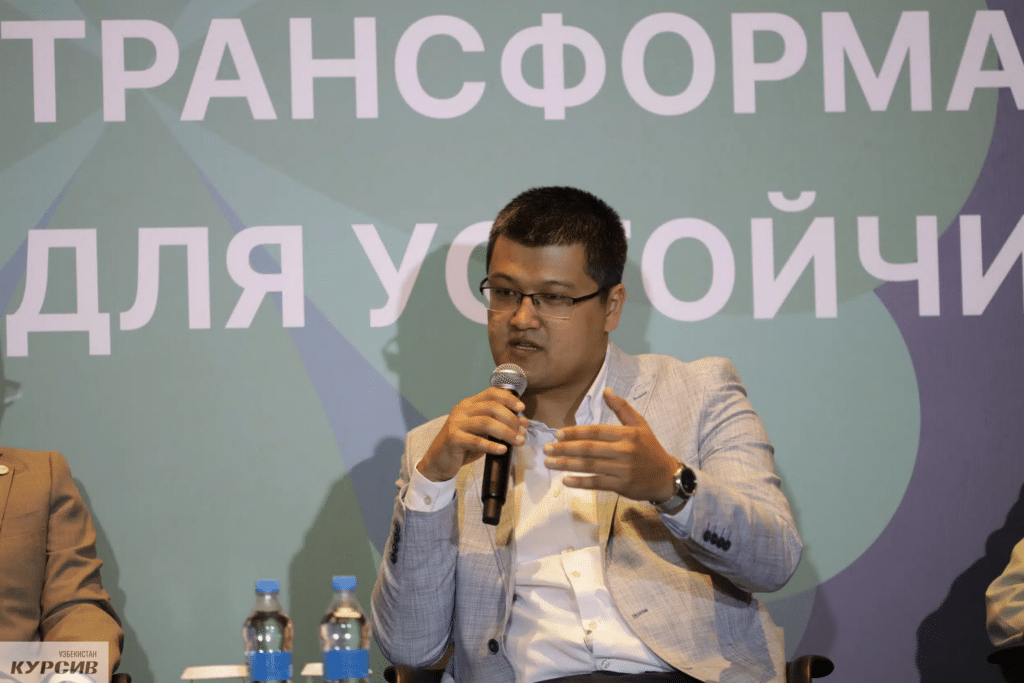
Pahlavon Nurmatov, head of Transformation Implementation at Uzbekhydroenergy JSC, shared his experience in applying ESG principles. He mentioned that until a couple of years ago, nobody in the company understood this abbreviation. With the help of invited experts, the employees and management worked out a vast amount of information in a short period. This teamwork resulted in the first sustainable development report in Uzbekhydroenergy’s history. Currently, the organization is preparing a long-term environmental strategy and a set of requirements for suppliers.
Currently, the organisation is working out long-term environmental strategies and requirements for suppliers. Nurmatov explained, “We will create requirements for green supply chains. A construction contractor company can request data on the implementation of ESG principles from the supplier when hiring.”
According to Jon Zaidi, head of the Uzbek branch of ACWA Power, only a change in investment standards will bring about a green economy: market players must change their attitude towards an inevitable ESG implementation.
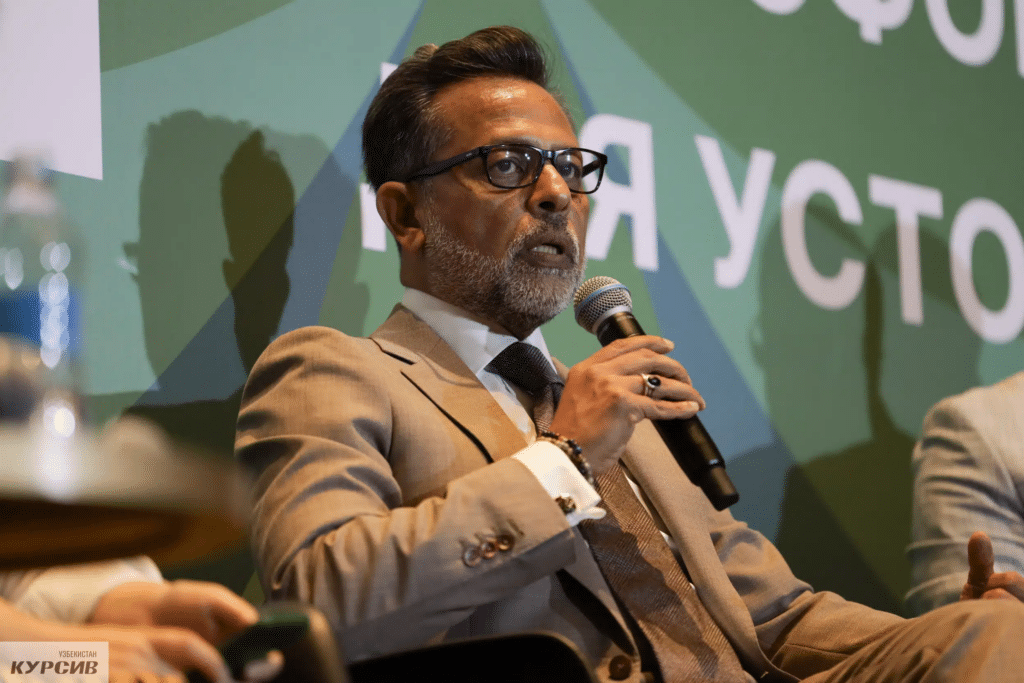
Zaidi underlined that ACWA Power’s ESG principles are part of its development strategy. The company operates in 12 countries, with Uzbekistan being its second-largest operating area in terms of investment volume, making the Republic a strategic partner.
Aigerim Ospanova, ESG consultant and director of the Central Asian Institute of Environmental Research, discussed implementing ESG principles in Kazakhstan. She noted, “In Kazakhstan, as in Uzbekistan, ESG was voluntary until 2023. In February 2023, the government adopted the strategy to achieve carbon neutrality by 2060. A roadmap should be ready by the end of this year – business is waiting for it.”
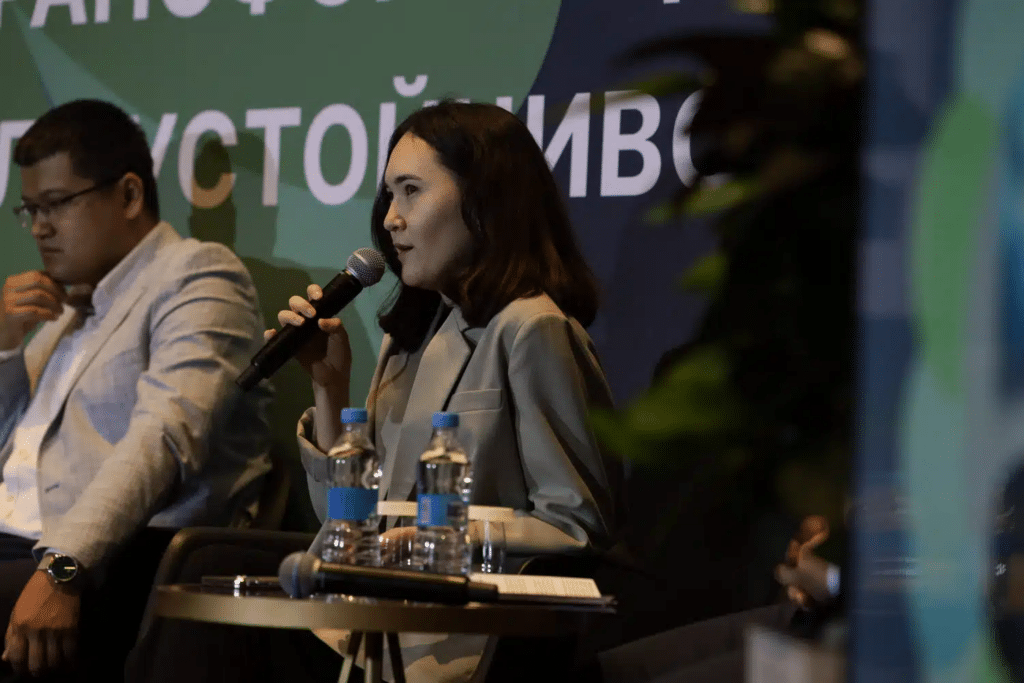
She added that from 2023, Kazakh financial institutions can voluntarily provide information about ESG implementation, which will become mandatory next year.
Suli Gayrat, deputy director of the technology company Huawei Uzbekistan, spoke about implementing ESG principles in their company. She highlighted that at Huawei, ESG is integrated into the global company development strategy from the initial stages of product development, production, logistics, and service. Gayrat added that the internationally undertaken obligations in China, where the company was founded, are generally shared between the country regions, and the manufacturing giants are driving the implementation of these obligations locally.

Session 2: Essential Factors for Entrepreneurs to Implement ESG
Tatyana Bystrushkina, executive director of the AmCham Uzbekistan Association, opened the Forum’s second session, “Where to Expect Money: The Role of International Development Institutions in Promoting a Sustainable Agenda.”
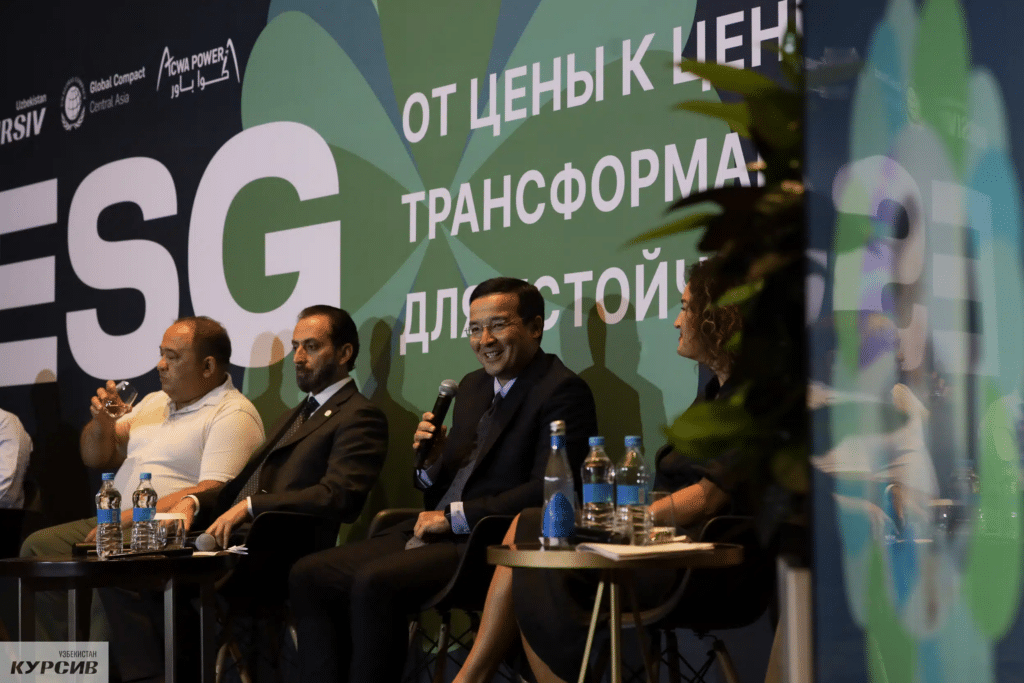
She explained: “We established the ESG Committee about five years ago, even before the Uzbek government started developing policies to promote a green economy. Why? Because our companies are international, and ESG standards have been applied in Europe and the USA for a long time.”
Bystrushkina emphasized the importance of adopting a strategy to reduce emissions in economic sectors and implementing ESG principles in the banking sector for ESG development in Uzbekistan.
She also highlighted short-term measures such as issuing international green certificates, establishing mechanisms with the United States and the European Union, creating a waste disposal database, and developing labour safety regulations.
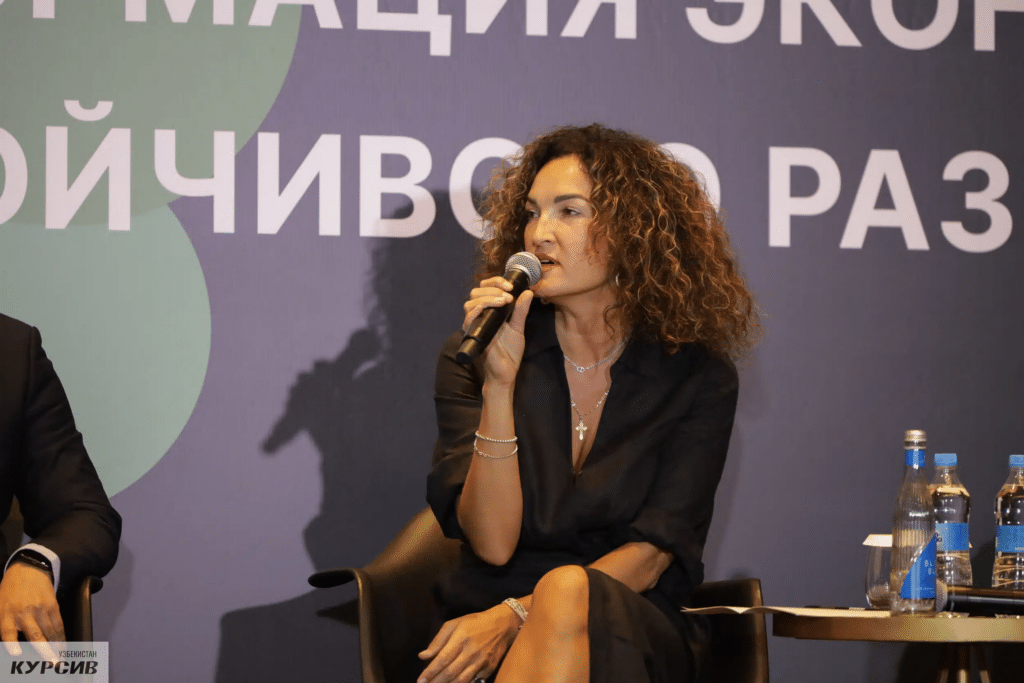
The head of the Council of Foreign Investors, Golib Kholjigitov, recalled that in 2019, Uzbekistan ratified a resolution to develop a green economy by 2030. This initiative aims to decrease greenhouse gas emissions and enhance renewable energy production capacity.
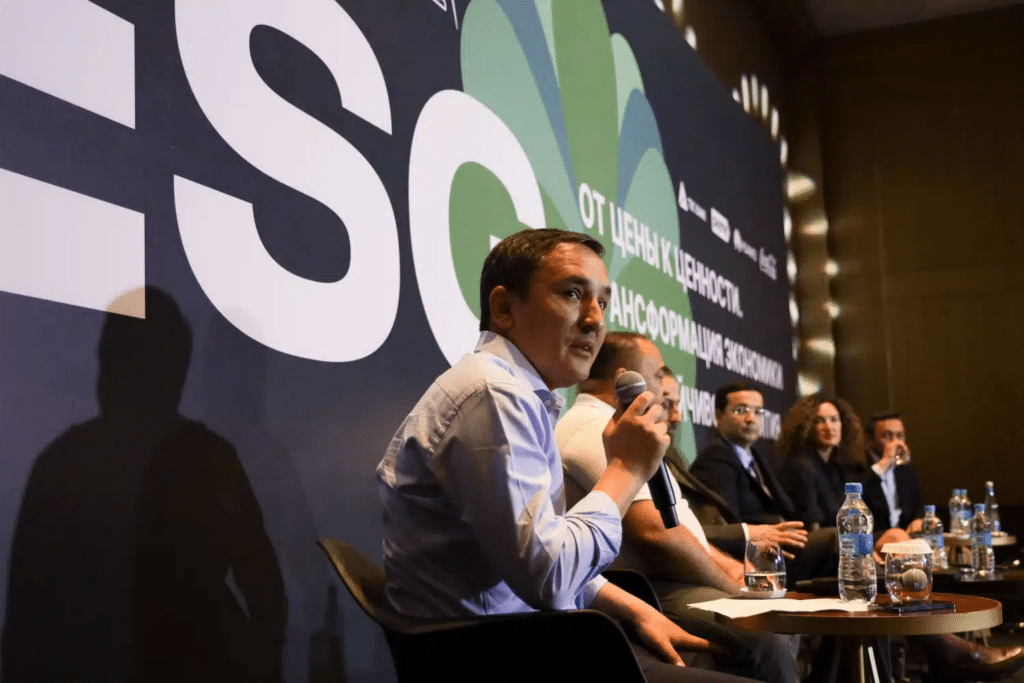
Kholzhigitov emphasized that the local market welcomes foreign investors, particularly in the energy sector.
Begzod Djalilov, senior economist of the Asian Development Bank (ADB), fully supports Uzbekistan’s green economic transformation. Nonetheless, he cautioned about the risk of “Greenwashing,” where organizations mislead consumers about their environmental friendliness.
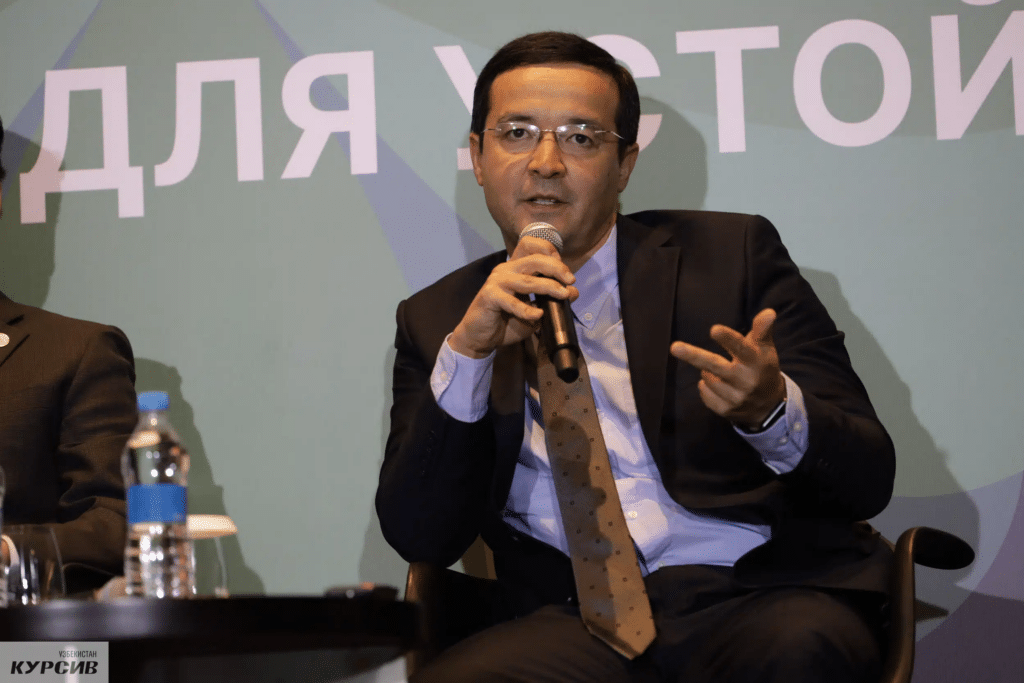
Djalilov added, “We are cautious about ESG issues because we are aware of companies in the US and other countries using ESG for greenwashing.”
ADB is currently collaborating with Uzbek authorities to establish regulations that will mitigate the risk of Greenwashing. Additionally, the bank is backing local energy efficiency projects.
The next speaker, Sardor Koshnazarov, consultant to the Department for Capital Market Development of the National Agency for Prospective Projects of Uzbekistan, discussed the development of a regulatory mechanism for green bonds. Koshnazarov mentioned, “Such a mechanism already exists. State-owned enterprises and private companies can issue green bonds.”
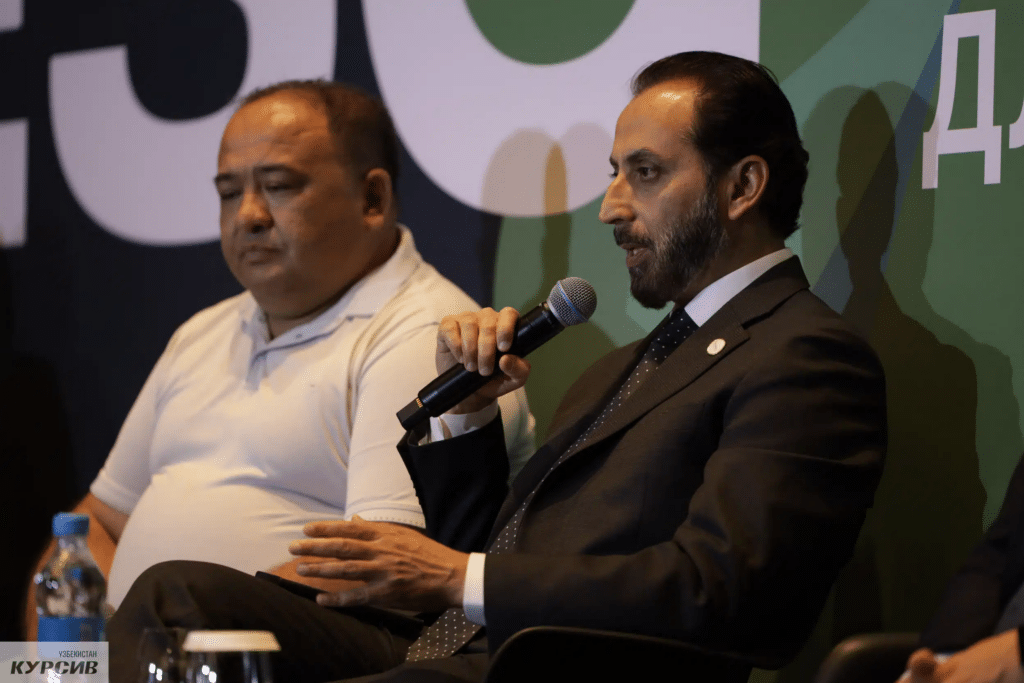
During the session, the Vice President and Chief Financial Officer for Central Asia at ACWA Power Ahsen Saeed pointed out that the company is involved in various projects, including enhancing production efficiency and transitioning power-generating capacities from coal to gas. He also underscored the company’s human capital development initiatives in Uzbekistan, particularly the training of top graduates and students from local universities.
Session 3: How ESG influences decision-making
During the session “The Impact of ESG Practices on the Decision-Making Process,” Kamila Salikhbaeva, ESG and climate change senior consultant at EY Uzbekistan, emphasized the importance of developing risk assessment policies.
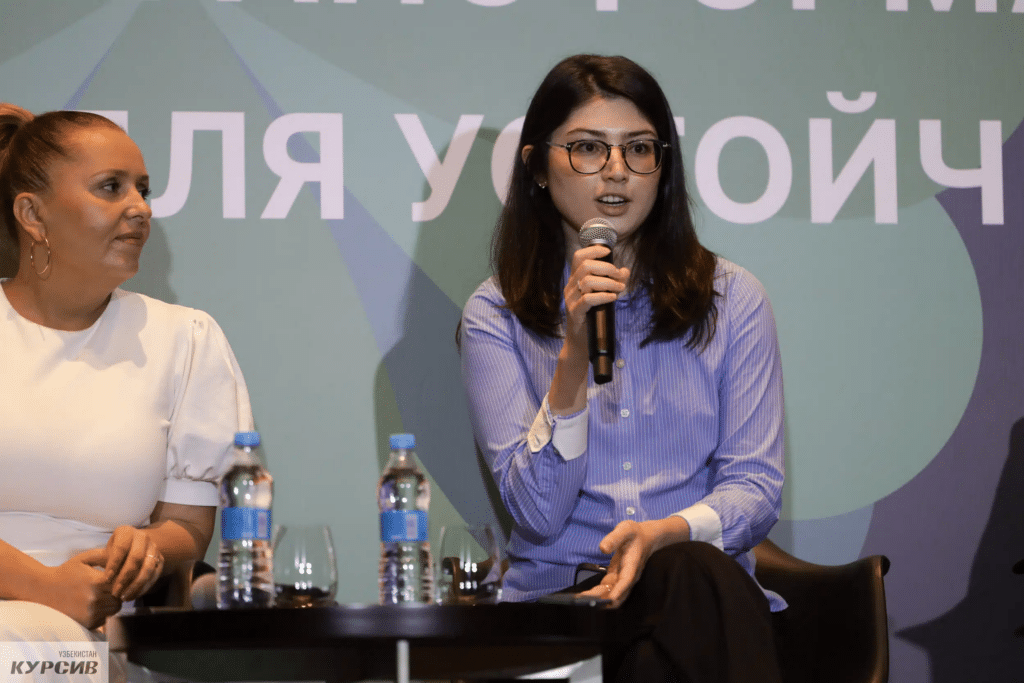
“First of all, companies should think about the policy of the committees that will be assigned the climate agenda,” explained Salikhbaeva.
She is convinced that identifying areas of responsibility and correctly distributing them between departments is necessary to manage risks in this area. Additionally, she stressed the importance of enhancing employees’ understanding of ESG principles.

Oksana Lyndina, governor of Kapitalbank, shared her experience of implementing ESG principles. She emphasized, “We are involved in numerous social development activities. For instance, we have launched a ‘Generation’ program aimed at providing career guidance for schools.” Lyndina also mentioned initiatives to enhance financial literacy and provide youth internships as examples.
Furthermore, Kapitalbank is actively carrying out an inclusion program. Currently, the bank has 67 employees with disabilities, and by the end of the year, this number will increase by an additional 30 people.
Additionally, the organization extends its support to several sports federations.
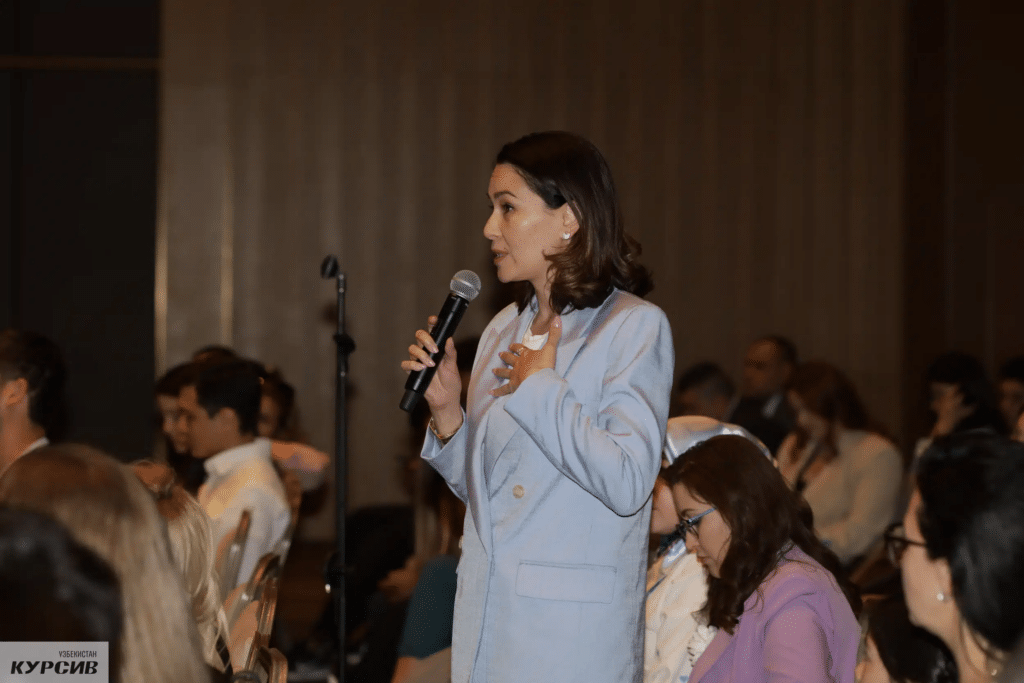
“Nazi Aripdjanova, director of Coca-Cola Central Asia PAC, discussed the company’s environmental initiatives.
“In 2007, we aimed to return 100% of the water we used globally within ten years. This goal was achieved two years ahead of schedule, in 2015,” Aripdjanova stated.
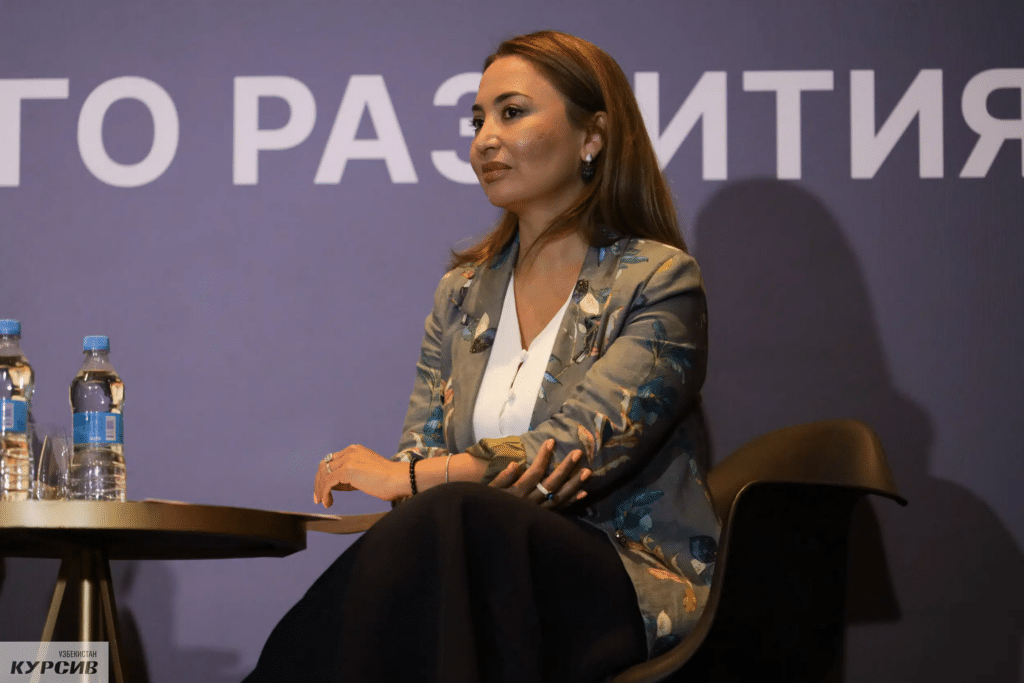
The Coca-Cola representative mentioned that the company was involved in repairing water canals, harvesting rainwater, and implementing modern irrigation systems.
“We later adjusted our strategy as it became evident that water does not always return to regions facing scarcity,” Aripdjanova explained.

Currently, Coca-Cola only returns water to areas with significant shortages in countries where its production facilities are located. Data analysis is conducted every three years to identify such locations.”
Olesya Semenyak, HR director of the SAG Group, a renowned carpet manufacturer, concluded the session by emphasizing the company’s commitment to zero-waste manufacturing.
“We sell the remaining threads to mesh manufacturers and offer our employees faulty goods at a reduced price. There are no sewage discharges, emissions, or pollution,” Semenyak underlined the positive impact of integrating ESG principles into production.
Session 4: Involving Media in the Agenda
During the concluding session of the Forum, the focus was on promoting sustainable development projects in the media.
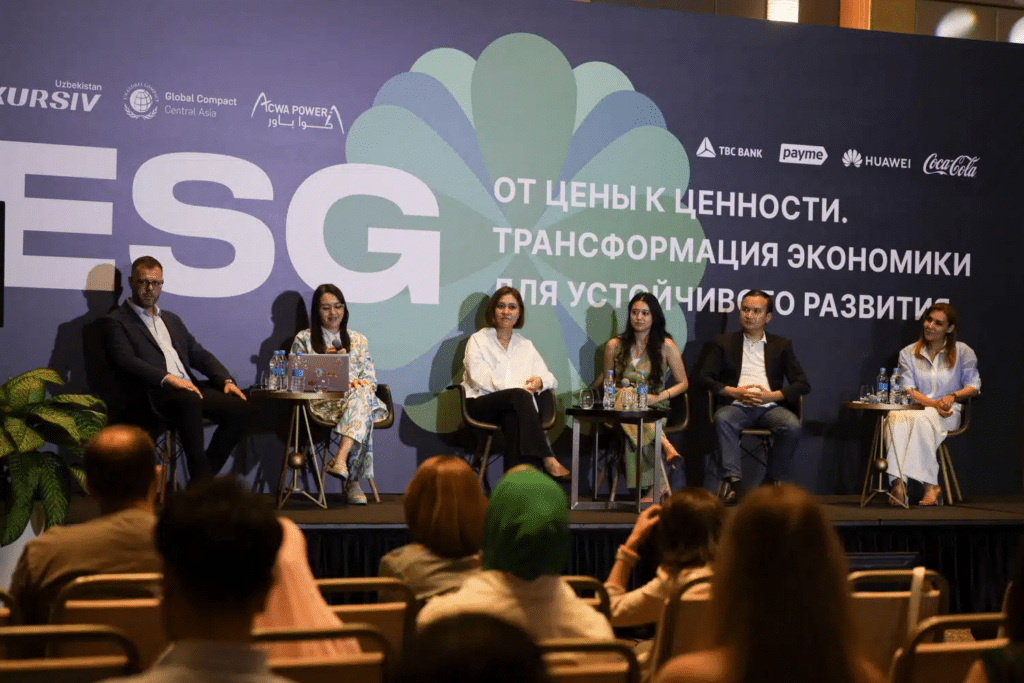
Andrey Kovalev, PR representative of the MTO Gas and Chemical Complex, emphasized the need for companies to actively address journalists’ inquiries about implementing green initiatives.
He stated, “It is crucial for companies to prioritize open data, accessibility, and mutually beneficial cooperation policies.”
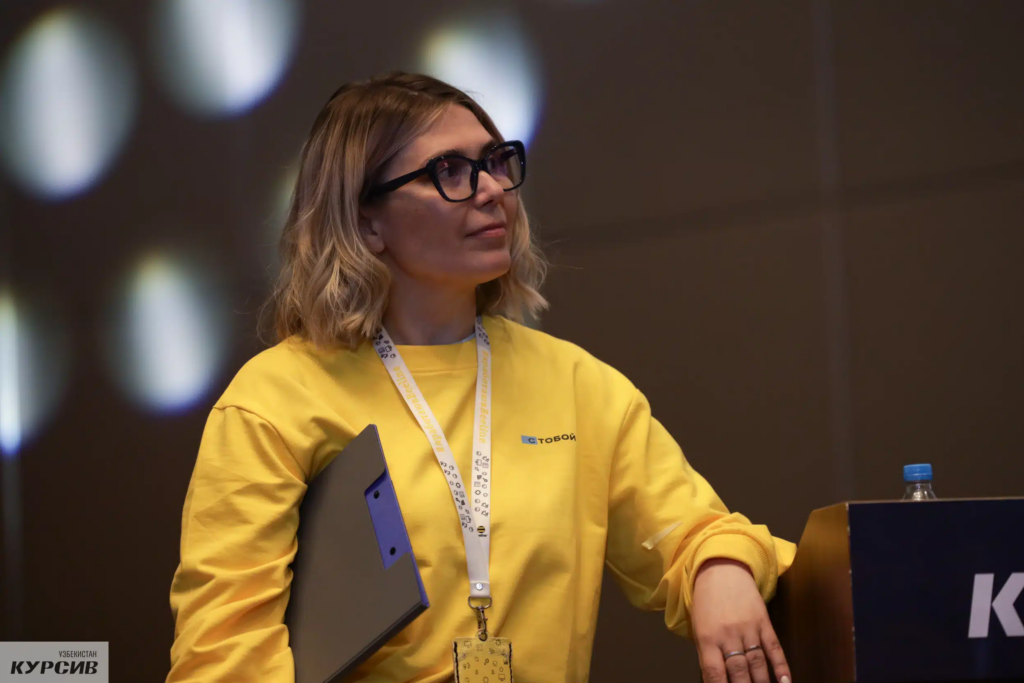
Additionally, Kovalev mentioned that the primary stakeholders of MTO are representatives of the state and its surrounding community.
Kamola Azimova, PR director of Coca-Cola Icecek Uzbekistan, explained that the company has identified three areas of focus for development: customer service, community, and employees. They have developed a program reflecting ESG (Environmental, Social, and Governance) and CSR (Corporate Social Responsibility) principles.
“Our vision is to become the best FMCG company in the consumer goods industry, and our goal is to create value not only within the three specific ESG areas,” Azimova explained.
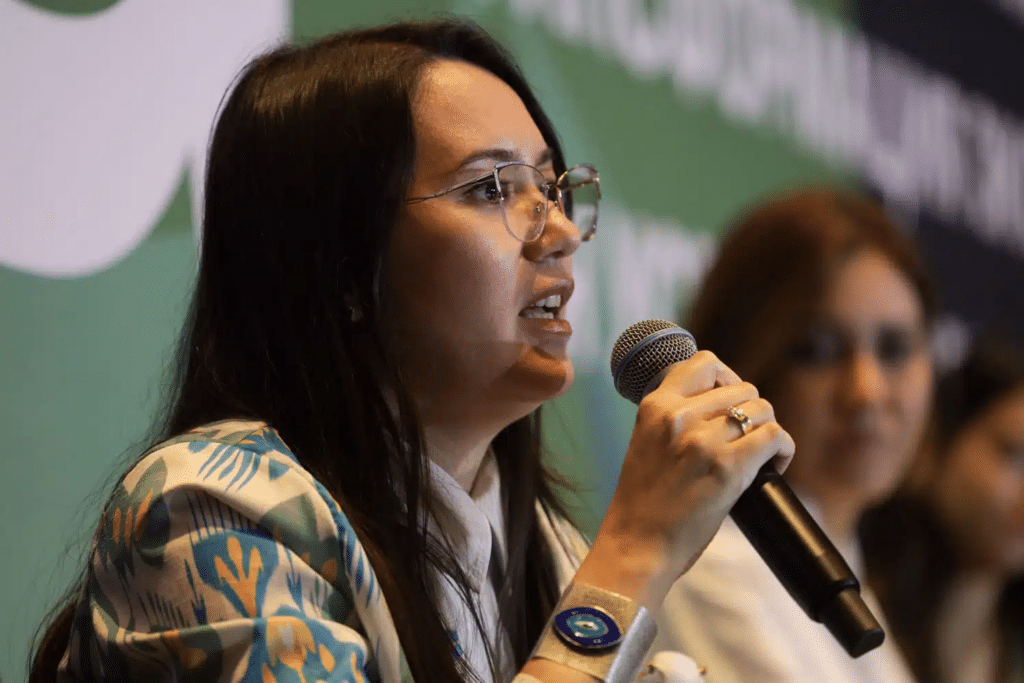
Shahlo Usmanova, the CSR and ESG senior manager at Beeline Uzbekistan, confirmed that the company compiles sustainability reports annually.
“It’s important to note that ESG is not a new concept for Beeline Uzbekistan or other companies within our corporation (VEON). Annually, we diligently gather ESG indicators from all our units, which are then integrated and verified to inform the development of impactful ESG improvement recommendations,” Usmanova emphasized.

ACWA Power’s Senior Corporate Communications Lead Janona Akhmedova stated, “ESG is in the company’s DNA.” In light of this, a communication strategy is being developed for Uzbekistan and Central Asia.
Akhmedova added, “We may not realize it, but we will influence the ESG agenda.” She also mentioned that the company is making strides in media with engaging news feeds.
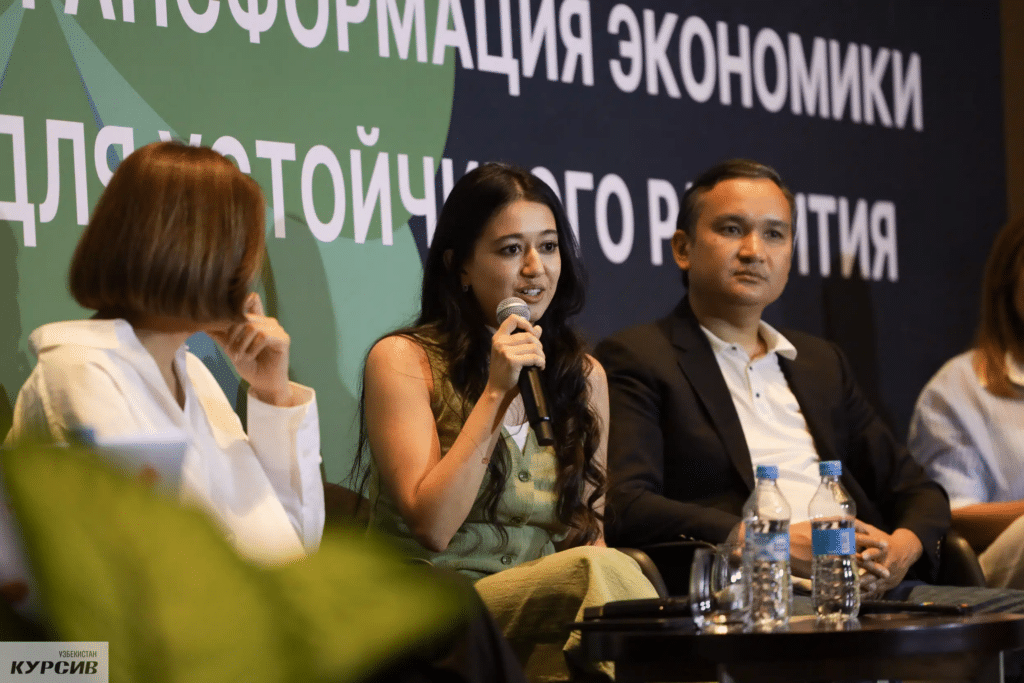
She noticed, “Advancing the green agenda is a shared responsibility. There is no customer or executor here. This is how we enhance the country’s investment attractiveness.”
Sanobar Abdukarimova, the marketing manager for Nutrition Nestlé in Uzbekistan, spoke about the brand’s direct engagement with consumers. The company initiated a program to contribute a part of the profits from baby food sales to planting trees around the Aral Sea. This program garnered support from journalists and was promoted through social media (SMM) and other promotional channels.
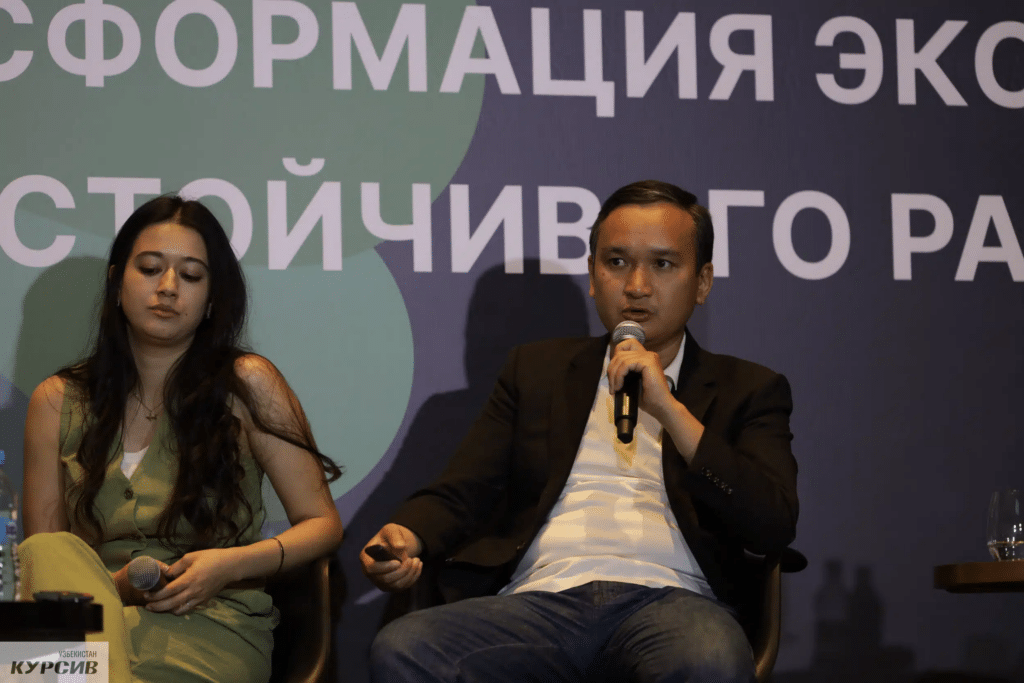
During the session, Daniyar Nurpeisov, head of the Kazakhstan Fund for Sustainable Development of Rural Territories, underlined the importance of involving local communities in discussing the sustainable development agenda.
Awards and Thanks
During the final part of the Forum, an award ceremony was organised to honour the individuals who asked the most outstanding questions to the speakers. Audience members who inquired about the accountability of construction companies for promoting environmental sustainability in large Uzbek cities, as well as the advancements of Coca-Cola’s initiative to establish a reservoir in the dried-up Aral Sea region, received gifts from Kursiv Uzbekistan and its partners.

ACWA Power was the platinum sponsor of the ESG forum, while Coca-Cola, Huawei, TBC Bank Uzbekistan, and Payme were the gold sponsors. The Forum’s official partner is the UN Global Compact.
Sitora Azizova, the ESG coordinator, commented on TBC Bank Uzbekistan’s sponsorship: “Participation in the ESG forum is another step in our commitment to sustainable development. We understand that our impact goes beyond financial performance, so we actively implement environmentally and socially responsible practices. We minimize the impact on the environment and support local communities.”
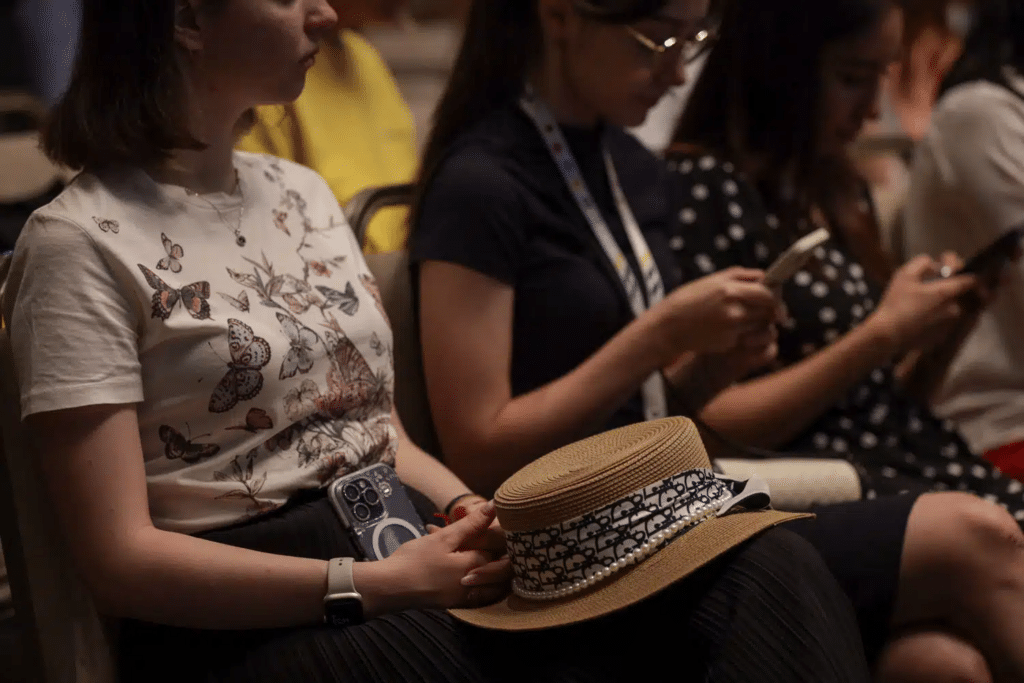
The ESG forum has become another significant event for the Kursiv Media business event. Previously, our platform facilitated in-depth discussions on the development of the capital market and the IT sector in Uzbekistan.






